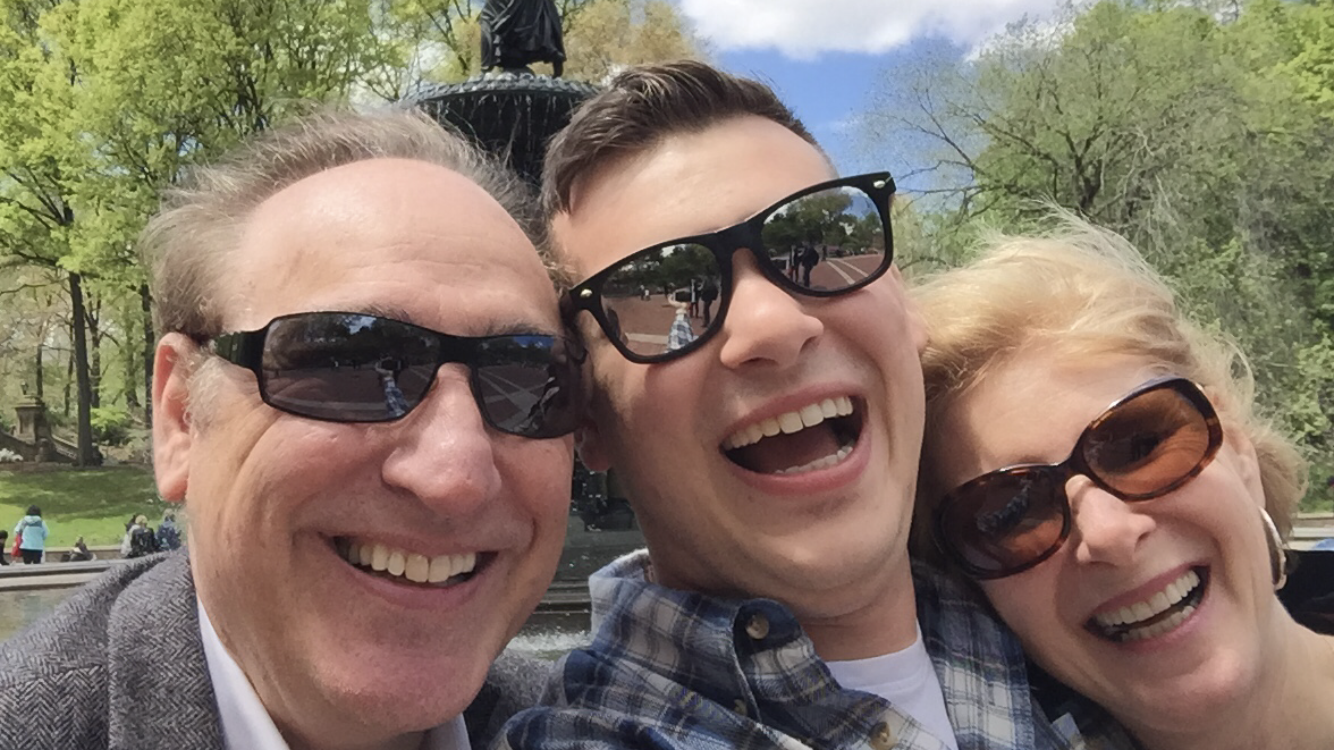Recently I was in a workshop on Humor and Coaching, and I haven’t stopped thinking or talking about it all month! Of course, laughing feels good. When my husband Gus or son Theo, good naturedly tease me, I laugh and feel more alive in the moment. But I never thought of laughter as a beneficial habit. Who thinks of laughter as being valuable to our well-being like meditating, exercise, or a good night’s sleep?
Not only does laughter feel good, but it also supports us in the most fundamental of ways: our health, our mindset, and our relationships. Kind of like a vitamin or a pill, but without any negative side effects—laughter releases “happy hormones.” Maybe you’ve heard of some of them, but do you understand how important they are to counteract our “stress hormones” and function more fully?
Getting to Know the Goodies and the Baddies
The Baddies first:
Stress hormones (cortisol, adrenaline, norepinephrine) exist to help us. They alert us to danger (or cause for worry) by increasing our heart rate and blood pressure. Unfortunately, because so much of life is filled with moments of anxiety and stress, especially now since the pandemic, those hormones can constantly flood our bodies. The result? Disrupted sleep, anxiety and depression, memory impairment, heart disease and more.
The Goodies or “Happy Hormones” to the Rescue:
The great news is our bodies are so amazingly designed that we have more good hormones to counteract the baddies.
Dopamine or the feel-good hormone is the one that supports our memory, learning, focusing, and expanded thinking for problem solving. It enables us to see a situation in a new light.
Serotonin or the happy hormone is also known as the mood stabilizer. It can help us with healthy sleep patterns and mood boosting as well as other physical functions.
Oxytocin or the love hormone is present in our bodies during childbirth, breastfeeding, and parent-child bonding. It helps promote trust, empathy, and bonding in relationships. Its also increases with physical affection, kissing, cuddling and sex.
Endorphins or the pain relievers are also known as the runner’s high hormone. Endorphins increase when we’re having a pleasurable experience such as, a good work out, doing a creative rewarding project, eating, or having sex.
And the delight is, laughing, a chuckle, or a deep belly laugh, releases all the good hormones!
Uplifting Laughter
The great news is—laughter is free medicine! It’s available to us anytime of day, any day of the week, whether we’re alone or with others. It’s a way of looking at life. Looking for what’s fun, silly, surprising, unexpected, ridiculous, quirky and letting loose with a smile and a belly laugh.
“Look for opportunities to be delighted rather than disappointed,” say Stanford University School of Business professors Jennifer Aaker and Naomi Bagdonas in their TedTalk, “Why Great Leaders Take Humor Seriously.”
Their advice makes me think of my friend Helaine. In the winter she slipped on her doorstep and broke her lower back. She was in severe pain for two months before she had surgery and has now been in rehab and extended care for three months. She is in a wheelchair and has not yet regained her mobility. A very frustrating situation for my active friend. A couple of days ago I called to check on her.
“How are you, Helaine?”
“Well, I haven’t had PT (Physical Therapy) all week,” she said matter of factly.
“That’s awful. Did you speak up about it?”
“Yes. I got in my wheelchair and went to speak to the director. I told him my story and he said, ‘Helaine, I know. We’re so short staffed. There’s nothing I can do about it.’”
“Did you get upset?”
“No. We both just laughed.”
I was blown away. That’s not like my friend to see the humor in a frustrating situation. “You laughed? How wonderful!” Seeing the humor in the ridiculousness of these pandemic times where there just aren’t people to work, enabled her to keep her calm and creatively problem solve. She decided it was time to go home, where she could get the services she needed. Humor gave her mental distance to shift her perspective and uplift her mindset.
Be Intentional with Humor
Anatomy of an Illness by Norman Cousins is an impactful book about the benefits of intentional humor. When Cousins discovered he had an irreversible connective tissue disease he created a unique healing approach to extend his life. He would watch comedy shows that were side-splitting funny for 10 minutes at a time. He found deep belly laughs gave him two hours pain free. He went on to create laughter therapy which enabled him to live twenty years beyond his doctor’s prognosis.
Knowing how good laughter and humor is for our well-being, how do we intentionally bring it into our day-to-day lives? I asked myself that question and came up with this list of laughing opportunities:
o Playfulness: I’m open to others being playful with me and joking about the quirky things I say and do (especially my husband and son.) As Relationship expert John Gottman says in his book, The Relationship Cure, when we approach our significant others with good humor, we have a full supply of goodwill and affection handy during disagreements. This of course applies to any relationship.
o Laughing at myself, like when things don’t go as planned.
o Looking with eyes of appreciation for the silliness or quirkiness of the people I interact with.
o Joining in with others’ belly laughs. Laughter is contagious.
o The comical on TV or in books: especially late-night TV hosts; shows like Mrs. Maisel, The Gilmore Girls, Grace and Frankie.
What’s funny to you?
As Aaker and Bagdonas say, “Laughing is like exercising, meditating, and having sex at the same time!”
Why not make humor a part of your healthy lifestyle?




